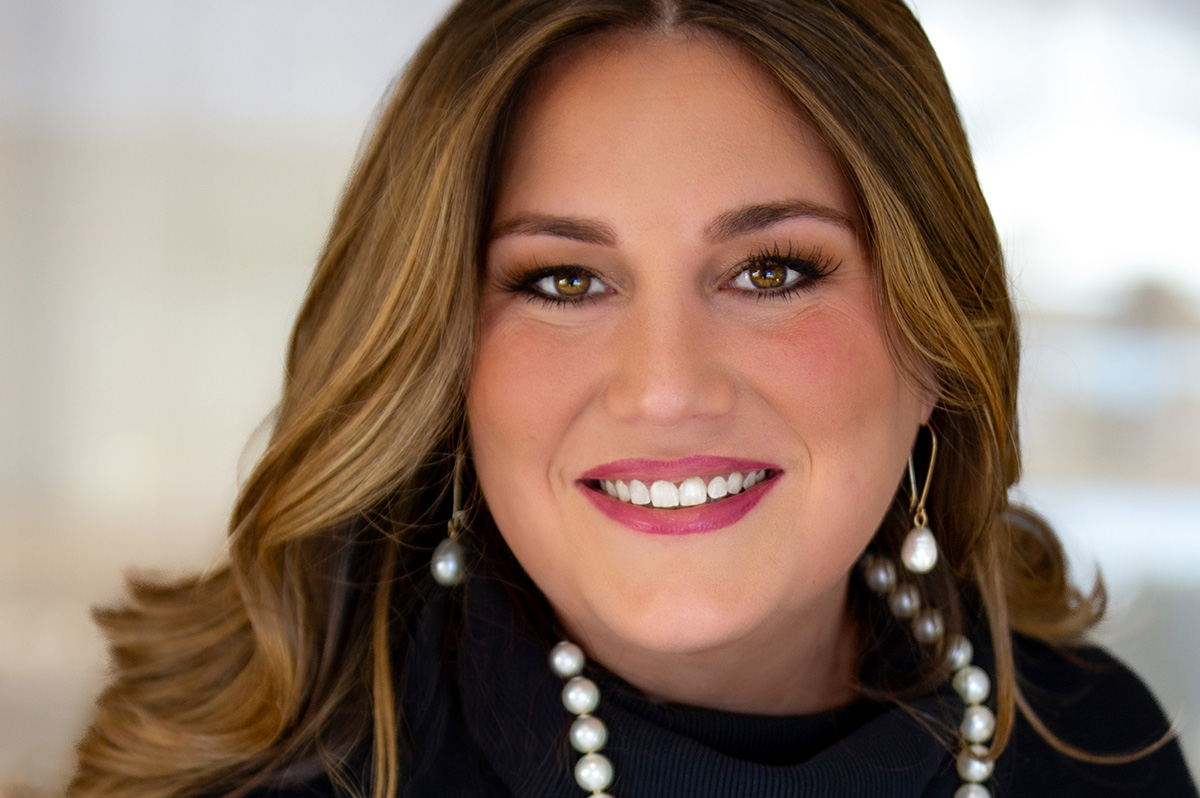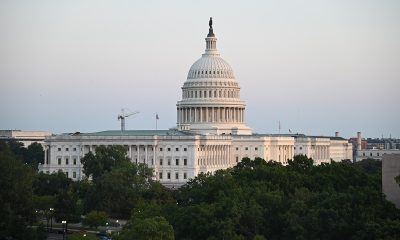National
Kagan denounces ‘Don’t Ask, Don’t Tell’
Supreme Court nominee calls gay ban ‘unwise, unjust’


U.S. Supreme Court nominee Elena Kagan was questioned this week about her handling of issues related to ‘Don’t Ask, Don’t Tell.’ (Washington Blade photo by Michael Key)
The issue of “Don’t Ask, Don’t Tell” and a controversy over allowing the U.S. military to recruit on college campuses emerged as central concerns during U.S. Supreme Court nominee Elena Kagan’s confirmation hearings this week.
The issues emerged Tuesday during the second day of hearings for Kagan — who’s currently serving as U.S. solicitor general — in testimony before the Senate Judiciary Committee, which was expected to continue throughout the week.
Sen. Jeff Sessions (R-Ala.) directed pointed questions at Kagan about the views she expressed as dean of Harvard Law School over military recruitment on campus.
According to media reports, in October 2003 Kagan wrote in an e-mail to students that military recruiting on campus caused her “deep distress” and that she “abhor[s] the military’s discriminatory recruitment policy.”
In testimony, Kagan affirmed her opposition to the ban on open service as dean and said she still holds that belief.
“I have repeatedly said that I believe that the ‘Don’t Ask, Don’t Tell’ policy is unwise and unjust,” she said. “I believed it then and I believe it now.”
Kagan said as dean she tried to ensure military recruiters had “full and complete access” while she simultaneously tried to enforce Harvard’s non-discrimination policy that bars discrimination based on sexual orientation.
She said she worked out a compromise as dean that enabled a veterans’ organization to sponsor military recruiters on campus as opposed to the U.S. military itself. Kagan noted that this policy was changed after the Defense Department voiced concerns about not having full access.
Sessions was critical of her efforts and cited examples of actions she took that he said raised doubts about her support for the U.S. military.
The ranking Republican on the Judiciary Committee, Sessions has voiced concerns about the Kagan nomination throughout the confirmation process and is a likely vote against seating her on the Supreme Court.
Sessions said Kagan participated in a campus protest and spoke out against the Solomon Amendment, which allows the U.S. government to withhold federal funding from universities if they restrict military recruitment on campus.
The senator cited a friend-of-the-court brief that Kagan signed as one of 40 Harvard professors in favor a U.S. Third Circuit Court of Appeals ruling in 2004 overturning the Solomon Amendment.
In response, Kagan characterized the brief as an argument that Harvard’s accommodation for military recruiters through a veterans’ group was consistent with the Solomon Amendment.
“We filed an amicus brief not attacking the constitutionality of the Solomon Amendment, but instead saying simply that Harvard policy complied with the Solomon Amendment,” she said.
Kagan noted that in the end, the Supreme Court unanimously rejected the arguments presented by Harvard professors in a 2006 decision upholding the Solomon Amendment.
Sessions accused Kagan of engaging in unscrupulous activity at Harvard by instituting a new policy following the Third Circuit ruling and suggested she shouldn’t have issued a change because the Solomon Amendment remained in effect.
The senator said Kagan’s description of events was “unconnected to reality” and that he was “a little taken aback” by her remarks.
“I know what happened at Harvard,” he said. “I know you’ve been [an] outspoken leader against the military policy. I know you acted — without legal authority — to reverse Harvard’s policy to deny the military equal access to campus until you were threatened by the United States government with the loss of critical funds.”
Sen. Patrick Leahy (D-Vt.), chair of the Judiciary Committee, interrupted Sessions to allow Kagan to respond to Sessions’ remarks.
Noting her father was a military veteran, Kagan said she has “respect” for the military and “one of the great privileges” of her time at Harvard was working with students who were former service members or who wanted to enter the military.
Doug NeJaime, a gay law professor at Loyola Law School, said Kagan “took the position that we expected her to take” in response to Sessions’ questioning by explaining school policy on military recruitment.
“I don’t think this is huge issue because, I think, it’s very much in the mainstream of law schools’ decision-making around ‘Don’t Ask, Don’t Tell’ and the Solomon Amendment,” NeJaime said. “And so, I think she defended the position in a satisfactory way.”
NeJaime said Sessions was trying to make it seem that Kagan was trying to undermine the U.S. military during her tenure as dean, or prevent them having access to students.
“She made it very clear that that’s not what she was doing,” NeJaime said. “The military had access to the students, and students had access to the military, and she had great respect for the military.”
Kagan’s opposition to “Don’t Ask, Don’t Tell” — which she articulated during her confirmation hearings — renews the question of whether she would have to recuse herself if confirmed and the issue came before the high court.
But NeJaime said he didn’t think such statements meant that Kagan wouldn’t be able to take part in a case on “Don’t Ask, Don’t Tell.”
“She’s been pretty clear about speaking about it as a political matter and as an ethical matter,” NeJaime said. “She thinks it’s a bad policy, but I don’t think that that means she can’t fairly adjudicate equal protection or due process claims raised by the ‘Don’t Ask, Don’t Tell’ policy.”
Further questions arose about LGBT cases in which Kagan may have to recuse herself in light of Leahy’s questioning on what matters she believed she would have sit out if they came to the bench.
In response to Leahy’s questioning, Kagan said she would recuse herself in cases that came before the court if she had been a “counsel of record” in any state of the process for litigation.
“I think there are probably about 10 cases that are on the docket next year … in which I have been a counsel of record in a petition for certiorari” or played a similar role, she said.
During her tenure as solicitor general, the Justice Department issued several briefs in defense of “Don’t Ask, Don’t Tell” — as well as the Defense of Marriage Act — in response to legal challenges in federal courts.
But NeJaime said the briefs don’t represent Kagan acting as a counsel of record because they originated under the jurisdiction of U.S. Attorney General Eric Holder.
“She’s in the solicitor general’s office whereas the papers filed in the DOMA cases have been coming from the Justice Department,” NeJaime said. “So she actually hasn’t been counsel of record on any cases implicating the Defense of Marriage Act, so I don’t see any problem there.”
NeJaime added this situation would also apply with respect to Justice Department’s response to legal challenges of “Don’t Ask, Don’t Tell.”
Federal Government
Trump anti-trans EO used to deny health care to Democrats, unmarried vets
Veterans warn impacts will be felt disproportionately by women and LGBTQ people.

New rules would allow doctors at the U.S. Department of Veterans Affairs to deny care to unmarried veterans and Democrats at hospitals across the country, pursuant to President Donald Trump’s anti-trans executive order, “Defending Women from Gender Ideology Extremism and Restoring Biological Truth to the Federal Government.”
According to the Guardian, which was first to report the hospital guidelines on Monday, they apply also to psychologists, dentists, and other providers — allowing for individual staff to refuse care for veterans on the basis of characteristics not covered under federal law, which proscribes discrimination on the basis of race, color, religion, and sex.
Doctors can also be barred from working on VA hospitals based on their marital status, political party affiliation or union activity, per documents reviewed by the Guardian. The agency confirmed changes to the rules came in response to Trump’s executive order.
Specifically, per the paper:
Until the recent changes, VA hospitals’ bylaws said that medical staff could not discriminate against patients “on the basis of race, age, color, sex, religion, national origin, politics, marital status or disability in any employment matter”. Now, several of those items — including “national origin,” “politics” and “marital status” — have been removed from that list.
Similarly, the bylaw on “decisions regarding medical staff membership” no longer forbids VA hospitals from discriminating against candidates for staff positions based on national origin, sexual orientation, marital status, membership in a labor organization or “lawful political party affiliation.”
Experts warn that changes to the guidelines may lead to situations where, for example, doctors may question patients about whether they attended a rally for a political candidate or in support of gay rights, potentially denying care on those bases or because of the reasons given for seeking care, such as cases where the patient may report a rape or sexual assault.
Veterans warn impacts will be felt disproportionately by women and LGBTQ people.
National
New LGBTQ+ Archive to save scrubbed federal resources
Trump’s anti-DEI crusade seeks to erase entire communities

Generally, when someone says, “The internet is forever,” it is not a positive statement.
But for Shae Gardner, policy director at LGBT Tech, it has become a lifeline as she and her team have spent the last couple of months tracking down documents removed from government websites.
After a series of anti-DEI and LGBTQ executive orders, thousands of pages across the federal government have been removed or altered—with LGBTQ topics taking a big hit.
The LGBTQ+ Archive, launched by LGBT Tech last month, aims to restore lost resources about the LGBTQ community into a centralized hub. They have tracked down approximately 1,000 documents—all available as downloadable PDFs and sorted by agency—but know that more are missing. Users can submit missing documents or requests for missing documents.
Archived resources range from the 2023 Equity Action Plans mandated under Biden to HIV resource sheets.
Sid Gazula, LGBT Tech’s Google Policy Fellow said reviewing the documents scrubbed from the Department of Health and Human Services was striking. “You have these important documents related to people’s health. Health isn’t subjective,” he said, “The fact that an executive order could take away all this information was very eye-opening.”
For Gazula it made an already urgent project more urgent. “We, as a community, need access to these resources,” he said, “The archive presents a mechanism to get that access out there.”
The LGBT community has a long history of engaging in archival work, explained K.J. Rawson, professor at Northeastern University and director of the Digital Transgender Archive, in an email. He described archives as “key avenues for preserving and making accessible queer and trans history.”
Since mainstream archives often erase or misrepresent the LGBTQ community, Rawson pointed out that LGBTQ archives “fight against this trend and wrest control back into LGBTQ+ hands,” citing Cait McKinney’s phrase “information activism.”
Gardner feels appreciative of the history of LGBTQ preservation, which guided their work: “I want to make it abundantly clear that we are not the first or only organization doing this sort of preservation work.” She also mentions the Internet Archive, a non-profit library of web pages, which was invaluable during their research.
When the Blade asked about the LGBT Archive, Rawson described it as “crucial!” He elaborated that, “the overt erasure of LGBTQ+ people––but especially trans people––from federal websites has been a hostile move that’s one part of larger efforts to strip us of our humanity and our history.”
Beyond creating a record for the future, the archive is also useful in fighting for LGBTQ representation today. Gardner explained that numerous journalists and advocacy groups have already been using it. Gazula, who is a student, shared that some of their professors said it was an important resource for academic work.
To access it, users have to create an account. Gardner said this is not for marketing. Instead, they want to “put a stop gap between us and malicious actors and attacks on the site” and have a basic understanding of who is using the site. She assures users that the data is backed up on servers globally, but encourages folks to download freely from the archive.
“We decided that we wanted every document and resource on it to be a PDF that they would be able to save it themselves,” said Gardner, “This is not only meant to be very user-friendly, but is also meant to help with those resources being dispersed and being kept.”
“It is the history of our community,” Gardner continued, “we deserve to have continued access to it.”
U.S. Federal Courts
Meeting the moment: Democracy Forward takes prominent role in fighting Trump regime
Group is involved in cases including some before the Supreme Court that concern LGBTQ rights

Just weeks before the U.S. Supreme Court is expected to decide a handful of cases with potentially huge implications for LGBTQ rights in America, the Washington Blade spoke with the president of a group that is involved in several of those legal battles and others that have taken center stage in President Donald Trump’s second term.
Since 2021, Skye Perryman has served as president and CEO of Democracy Forward, a legal services and impact litigation group distinguished in part by its focus, “in our organizational hiring, and in our growth, and in our organizational culture,” on “having as many highly talented lawyers full-time, on our staff, as we possibly can.”
The moment requires it. Since the start of the new administration, demand for legal representation has skyrocketed as people and communities, from government workers to university administrators and LGBTQ populations, have been targeted.
Additionally, following his return to the White House Trump has launched an unprecedented assault against lawyers and law firms, which has discouraged attorneys from representing clients and causes that might put them at odds with the administration or with the president himself.
As queer Russian-American journalist and author M. Gessen said recently, “the judiciary is the hardest thing to restore once it has been destroyed. It’s a very, very complicated universe — of courts and lawyers and cultural norms and educational institutions and law firms as institutions that are distinct from individual lawyers — and he’s attacking every one of those elements.”
“We’ve grown substantially in order to be able to meet this moment, which is why we’re able to be in court,” Perryman told the Blade, “because we have lawyers on our staff,” about 50 full-time attorneys right now, which means “we’re not as dependent on pro bono legal services.”
Trump’s attacks on the rule of law have been complicated by the surrender of firms that have struck deals with the president to spare themselves from executive orders that present existential threats to their survival but which others have chosen to fight in court.
Perryman said that as a result of these settlements, “there are less legal services available at a time when the major tool that the American people have right now to defend their rights against their government is the ability to initiate litigation.”
In back-to-back rulings in late March followed by a decision early last month, Judges John Bates, Richard Leon, and Beryl Howell of the U.S. District Court for the District of Columbia struck down Trump’s executive orders against the firms Jenner & Block, WilmerHale, and Perkins Coie, ruling them unconstitutional. (Perryman is an alum of WilmerHale and of Covington & Burling, another top firm that is fighting an order targeting them.)
Nevertheless, “there has been an exponential increase in demand for our work as an organization, for our lawyers, because there has been a reduction in legal services provided by many firms in the private bar,” Perryman said.
She hedged that many firms have continued “doing pro-democracy work” since the start of Trump’s second term, but added there still “has been an overall significant gap in the legal services the private bar has been providing.”
Asked whether she has seen evidence that this has impacted litigation against Trump’s anti-trans executive orders and policies, Perryman declined to address specifics. “What we’ve seen more broadly is just firms not wanting to take on causes that would put them in the crosshairs of the administration,” she said, but noted that “of course, this is an administration that’s already shown that it’s very focused on rolling back the rights of the LGBTQ community.”
Pushing back against attacks on the rule of law
“There’s not a question in these courts’ minds about the constitutionality of what the administration is doing,” Perryman said. “You see very strong language that unequivocally makes it clear that a variety of our constitutional amendments and provisions are threatened and violated with respect to a president that is seeking to retaliate and to engage in these direct attacks on lawyers and law firms.”
Moreover, “These judges have all spent time in their opinions talking about the corrosive effects [of] law firms that have settled their matters, the fact that the administration appears to be have been able to resolve its concerns about a law firm merely if they’re willing to settle,” she said. “They really call that out as a pretext.”
Perryman added that the judges who have ruled in favor of plaintiffs challenging the Trump administration represent a variety of ideological backgrounds, or were nominated for their positions by presidents from both parties, which “really shows that these attacks and the response and our Constitution’s response to these attacks is something that transcends politics and transcends the general way that we look at politics in this country.”
“In the United States, the president cannot retaliate against people just because he doesn’t like who their clients were, and he can’t deprive people of legal representation,” Perryman said. “And I think that you see those themes come through very clearly in the opinions.”
Major victories and what’s on the docket now
“In many instances, we’ve co counseled and developed cases alongside Lambda and other groups specifically and exclusively focused on LGBTQ rights,” Perryman said, referring to Lambda Legal, an LGBTQ focused organization that does a lot of impact litigation.
“Democracy Forward’s expertise is very broad, and we do a lot of work with respect to the federal government and federal agencies and how those agencies work for people,” she added.
Perryman pointed to the successful legal challenge led by Democracy Forward against the Office of Management and Budget’s Jan. 28 memo ordering a nationwide hold on disbursements of federal grants and loans. The order came pursuant to Trump’s executive orders targeting DEI and the trans community, so LGBTQ nonprofits were disproportionately impacted among the groups receiving public funds.
The lawsuit filed on behalf of Democracy Forward’s plaintiffs including SAGE, which provides a variety of critical services for LGBTQ elders, resulted in a preliminary injunction issued by Judge Loren AliKhan of the U.S. District Court for the District of Columbia, which remains in place, protecting organizations that she noted would otherwise have faced “economically catastrophic—and in some circumstances, fatal” consequences.
“That litigation is helping the whole country, not just LGBTQ communities,” Perryman said, noting that in this case as in other cases, LGBTQ people and communities are often disproportionately impacted by litigation that, facially or at first blush, may not seem to directly concern their rights or welfare.
Perryman credited SAGE for suing the administration during its early days when the executive orders targeting lawyers and law firms were new and there was not much appetite for challenging the new Trump regime in court. “Everyone was very scared,” she said “and we’re just so proud of our clients.”
Another example, she noted, is Medina v. Planned Parenthood South Atlantic, which is pending a decision by the Supreme Court. The case is “sort of around an executive order that the governor of South Carolina put in place that removes facilities that provide abortion from the Medicaid provider list,” Perryman said.
She continued, “What that effectively does is it cuts off access, for patients that are using Medicaid, to critical services provided by Planned Parenthood clinics in the state, services that go far beyond just abortion care. Planned Parenthood, of course, provides so many sexual and reproductive health services, including to the LGBTQ community. And so I think that is a case that is also worth mentioning. We filed a brief there on behalf of current and former senior HHS administrators and others.”
Also before the Supreme Court as the June term nears its conclusion are cases like Kennedy v. Braidwood Management, Inc., which could imperil coverage under the Affordable Care Act for a broad swath of preventative health services and medications beyond PrEP, which is used to reduce the risk of transmitting HIV through sex.
Plaintiffs brought the case to challenge a requirement that insurers and group health plans cover the drug regimen, arguing that the mandate “encourage[s] homosexual behavior, intravenous drug use, and sexual activity outside of marriage between one man and one woman.”
The case has been broadened, however, such that cancer screenings, heart disease medications, medications for infants, and several other preventive care services are in jeopardy, LGBTQ and civil rights organizations have argued.
“In the Braidwood case, we filed a brief representing medical groups that outlines the real harms that could result if the court adopts what is, we believe, quite a baseless position,” Perryman said, “and how those harms could extend to all communities, frankly.”
There are others, Perryman noted. “The administration weaponizing the government against the rights of the American people and against LGBTQ people,” which has led Democracy Forward to challenge the firing of federal employees responsible for DEI, and the termination of Jocelyn Samuels from the U.S. Equal Employment Opportunity Commission, where she served as a commissioner and as such enforced anti-discrimination laws in the workplace including rules protecting LGBTQ people.
The organization is also in court fighting the administration’s effort to “prevent federal workers at National Guard facilities from being able to access bathrooms that correspond with their gender and their needs,” Perryman noted.
“Those types of matters that really involve the mechanics of the federal government and how it’s being weaponized against the American people, those are areas where Democracy Forward has had particular expertise and has been a core player,” she said.
The organization is active at the state and local level, too, including on matters that have “significant overlay with the LGBTQ community,” Perryman said. She pointed to lawsuits where, “We’ve sued on the decimation of the library sciences,” on behalf of the Institute of Museum and Library Sciences, important litigation given how state-level censorship has disproportionately targeted LGBTQ books, curricula, and speech.
Stronger together
“What I’m looking forward to as we move forward, I mean, this is a hard time, and it’s a hard time for the country,” Perryman said. “We know there’s a lot of fear.”
Reflecting on the resilience of LGBTQ people and communities specifically during Pride month, Perryman said, “what I’m looking forward to at our work at Democracy Forward is how we get to be alongside the people and communities in this country that even though they are afraid, and even though they are scared, they are making the choice to choose courage and to step forward and say, we can build some community together.”
“We see that happening in our work every day with all of these amazing plaintiffs and groups that we are representing,” she added. “While big, storied institutions are not standing up the way they need to, in this time, the American people really are and at Democracy Forward, we get a front row seat to that, which is a real honor.”
“As I think about the months ahead, which will be challenging, I’m just really looking forward to continuing to have a team that’s able to be there for people that in this time are choosing courage,” Perryman said.





















